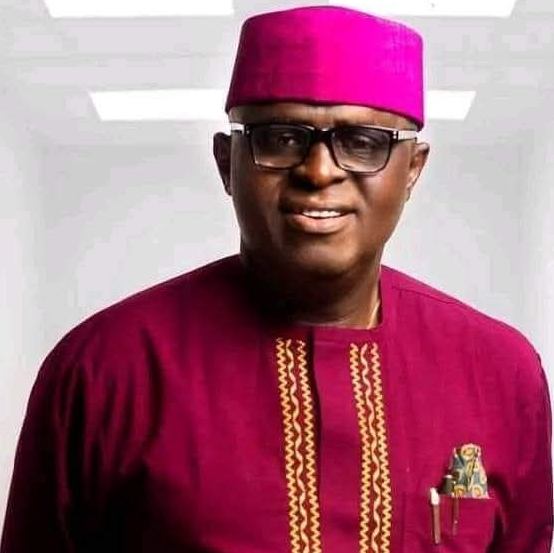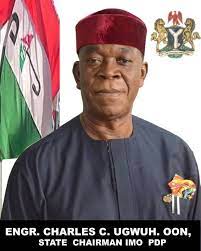The Igbo people, renowned for their democratic and republican ethos, have historically thrived through the structure of Town Unions. This indigenous leadership model, deeply rooted in Igbo culture and values, has long been a powerful vehicle for social mobilization, cultural preservation, and community-driven development. Unfortunately, over time, the significance of this structure has diminished, especially at the apex level of Igbo decision-making. This neglect has contributed to the disconnect between the people and the leadership. Yet, in the face of this oversight, Chief Emeka Diwe has emerged as a beacon of hope, reviving and modernizing this age-old system to meet the challenges of contemporary society.
Throughout history, Town Unions have played pivotal roles in the development of Igbo communities. These unions represent grassroots democracy in its purest form, where collective decision-making and unity prevail. Across Igboland, Town Unions have performed nearly impossible tasks, leaving legacies that testify to their power. In Umuaka, Njaba LGA, the Town Union built a modern market, drawing commerce and economic growth to the area. In Nanka, Orumba North LGA, the Town Union spearheaded the construction of massive erosion control systems to save farmlands and homes from devastation. Similarly, the Amawbia Town Union in Awka South LGA built a community secondary school entirely from voluntary contributions.
Other remarkable examples include the Town Union in Isuofia, Aguata LGA, which funded the establishment of a state-of-the-art community hospital, providing healthcare access to thousands. In Arochukwu, the Town Union led the restoration of the historic Okoroji Long Juju Shrine, a cultural landmark that now attracts tourists and researchers. These feats underscore the ability of Town Unions to mobilize resources, foster unity, and achieve development goals that seem beyond the reach of conventional governance structures.
Chief Emeka Diwe’s story is one of a visionary leader who recognized the immense potential of the Town Union system. As the President General of his hometown of Akpulu in Ideato North, Diwe left an indelible mark, demonstrating the transformative power of community leadership. His initiatives in Akpulu not only improved infrastructure but also fostered unity and a sense of purpose among the people. These achievements became a blueprint for broader action across the South East.
Building on his success, Diwe took the bold step of uniting Town Unions across Imo State under the umbrella of the Association of Imo State Indigenous Town Unions (AISITU). This structure became a platform for collective action, giving the people at the grassroots a stronger voice in state affairs. Recognizing the need for a broader reach, Diwe expanded this model to the entire South East, founding the Association of South East Town Unions (ASETU). Today, his vision has grown even further, culminating in the establishment of the Association of Igbo Town Unions (ASITU).
The brilliance of Chief Diwe’s vision lies in its alignment with global examples of development through indigenous structures. In India, the Panchayat Raj system has empowered rural communities to govern themselves and drive development. Similarly, the Kibbutz system in Israel has harnessed communal living to achieve remarkable agricultural and industrial success. These models underscore the importance of leveraging local knowledge, traditions, and leadership to achieve sustainable progress.
The Igbo Town Union system, as reimagined by Diwe, offers a solution to the leadership vacuum and alienation that has plagued the region. Unlike externally imposed structures, Town Unions resonate with the people’s genetic configuration and values. By reconnecting the people to their roots, this model addresses the disconnect that often breeds dissent and underdevelopment. It provides a direct channel for addressing the aspirations and needs of the people, ensuring that no one is left behind.
Chief Emeka Diwe’s efforts should not only be celebrated but also emulated by Igbo elites and stakeholders. His vision has reawakened the Igbo spirit of self-reliance and collective progress, reminding the people of their strength when united. Leaders across Igboland must rally around this model, providing the necessary support and resources to ensure its sustainability and growth.
The success of the Town Union system under Diwe’s leadership serves as a clarion call to other regions in Nigeria and beyond. It demonstrates the power of indigenous structures in fostering unity, driving development, and preserving cultural heritage. As Igbo people embrace this model, they set an example for others to follow, proving that progress is most sustainable when it is rooted in the people’s identity and values.
The achievements of Chief Emeka Diwe remind us that the solutions to our challenges often lie within. By embracing the Town Union model, the Igbo people have rediscovered a source of strength and pride that will continue to propel them forward. Let his name be etched in the annals of history as a true leader, a visionary, and a custodian of the Igbo spirit.








